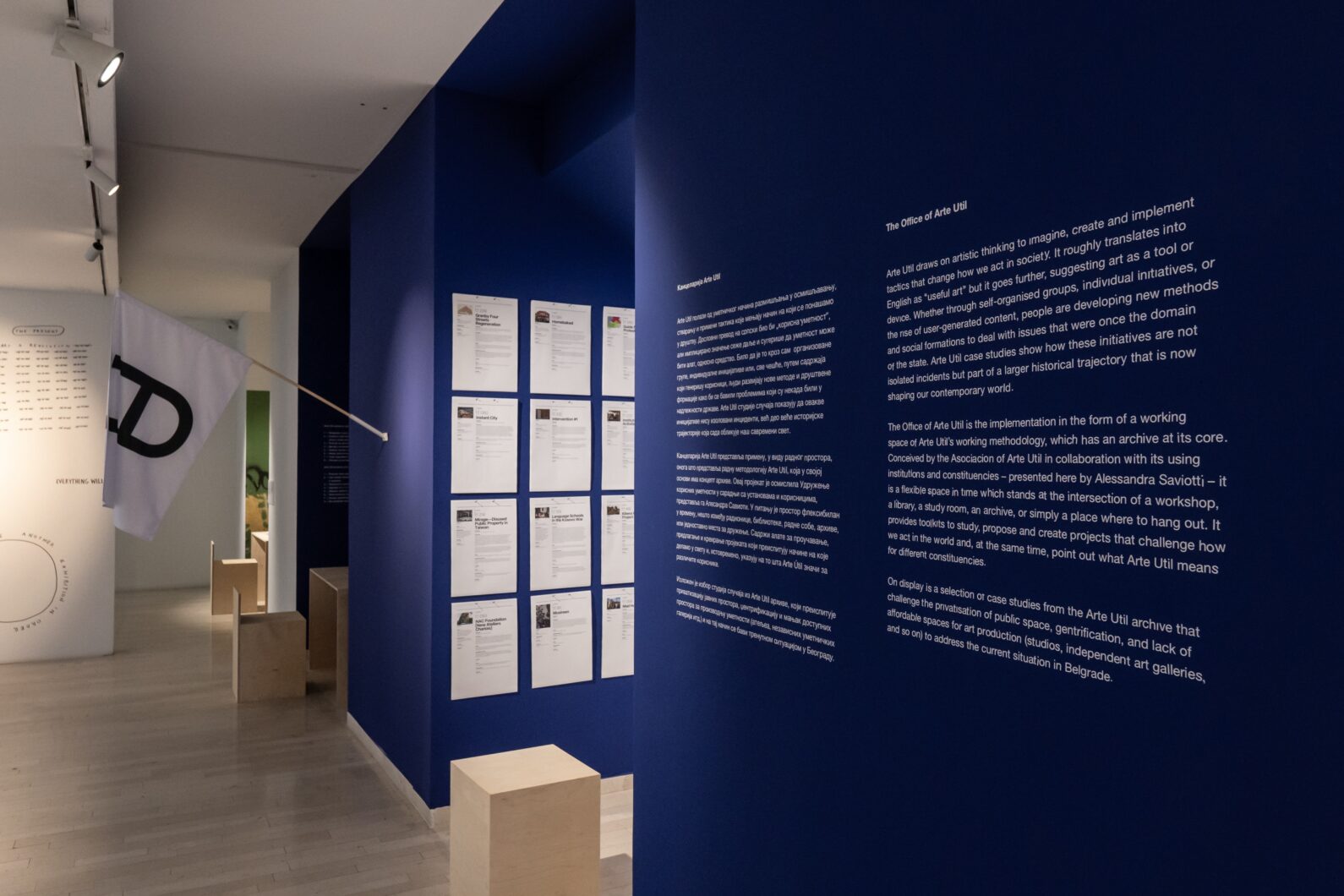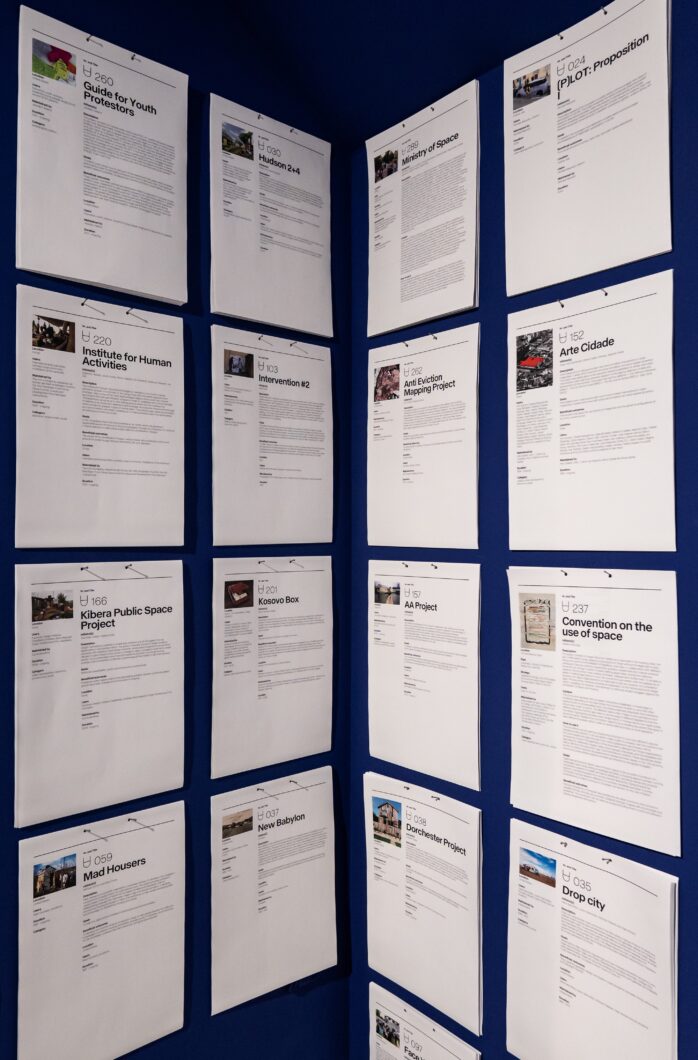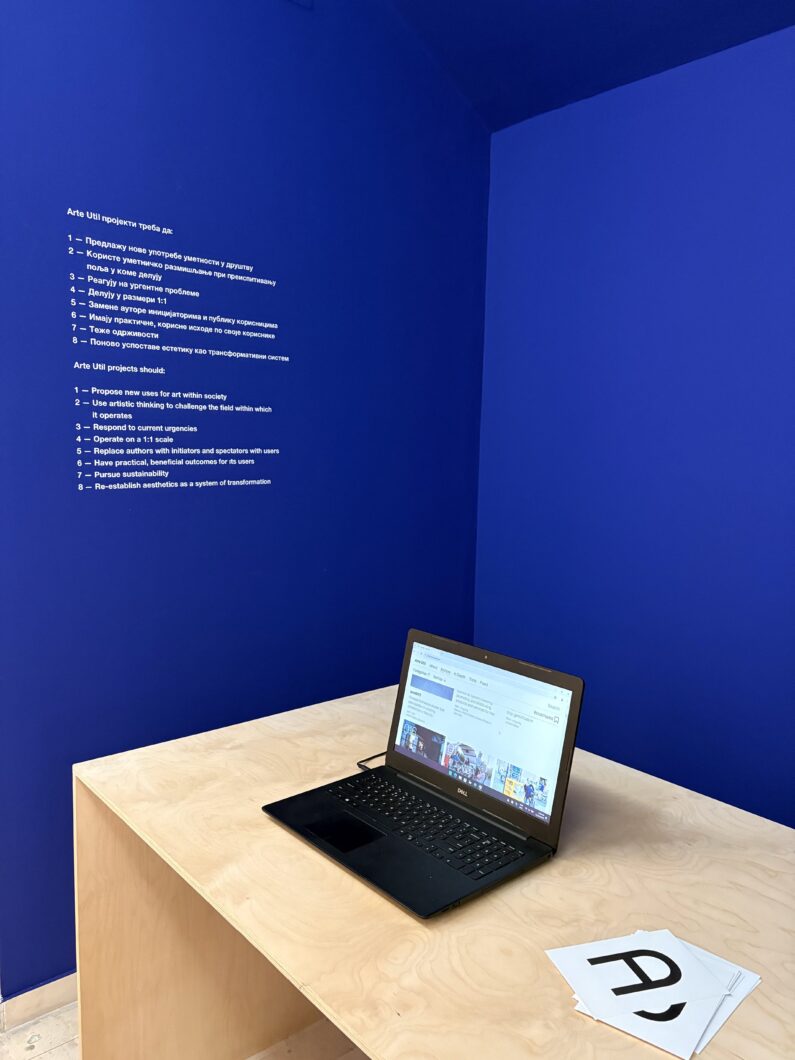Reclaiming Urban Spaces: the Asociación de Arte Útil at the 60th October Salon
As part of the 60th edition of the October Salon in Belgrade (Serbia), the Asociación de Arte Útil was invited to participate in Traces, an exhibition curated by Lorenzo Balbi and Dobrila Denegri (20/10 – 1/12/2024). The exhibition originates from a series of critical questions, such as: What role can an exhibition play in fostering reflections on the work of artists, their future, and the creation of a committed community? What meaningful impact do contemporary art biennales leave for the local community? These inquiries underpin a concept aimed at proposing a new model for the October Salon, wherein the “trace” of the exhibition continues to live and function beyond its official two-month duration. This approach seeks to affirm and expand the spaces dedicated to art, ensuring their availability to both artists and the local Belgrade community.

The Office of Arte Útil, Trace, 60th October Salon, 2024. Photo: Emma Szabó
Alessandra Saviotti, the co-curator of the Arte Útil archive, contributed to the exhibition by selecting case studies that address critical themes such as gentrification, the right to the city, and the lack of spaces for artists and cultural workers. As part of the public program, she conducted a workshop with students from the Academy of Fine Arts, under the supervision of Svetlana Volic and Nemanja Nikolić. Additionally, she organized a roundtable discussion titled Art as a Tool to Rethink the Urban Landscape, featuring Iva Čukić (Ministry of Space), Ana Džokić (STEALTH.unlimited), and Lorenzo Balbi, curator of the 60th October Salon.

The Office of Arte Útil, Trace, 60th October Salon, 2024. Photo: Emma Szabó
In today’s rapidly transforming urban environments, democracy and public participation face unprecedented challenges. The increasing dominance of profit-driven capitalism has led to political stagnation, hindering the planning of sustainable futures and failing to provide inclusive spaces for all citizens. The roundtable discussion sought to address pressing issues such as the privatization of public spaces, the influence of real estate interests on urban development, and the gentrification processes that frequently follow.
The event emphasized how artistic practices can serve as catalysts for change. By examining art projects in Belgrade—such as those by the Ministry of Space and STEALTH.unlimited—as well as international projects included in the Arte Útil archive, the discussion highlighted the potential of art to envision alternative urban futures. These projects reject prescriptive solutions, instead emphasizing the power of creativity to reimagine cities and reclaim spaces for public use.

The Office of Arte Útil, Trace, 60th October Salon, 2024. Photo: Alessandra Saviotti




